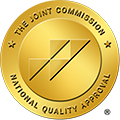Family gatherings are supposed to be joyous occasions, but for many, they rank high on the list of stress-inducing events. Understanding and managing the anxiety that comes with these get-togethers is crucial for maintaining your mental health and well-being.
Understanding Anxiety at Family Gatherings
Often, family dynamics are complex, steeped in a history that shapes your emotions and reactions. These relationships might create tension when you reunite this holiday season. It’s not always about disliking your family; sometimes, a strained history with only one family member can cause significant stress.
Remember, it’s perfectly normal to have mixed emotions about family events. You might care deeply for your family but still feel apprehensive about attending gatherings. Maybe you’re introverted and find small talk draining, or perhaps you feel out of place discussing topics like politics or sports. Many people also find themselves playing a role at family events, masking their true selves to fit in or avoid conflict.
How to Identify What You’re Feeling
It’s crucial to differentiate between dread and social anxiety disorder. While they are similar, they’re not identical. Dread is a feeling of discomfort or unease at the thought of attending the event. It could stem from various reasons, such as feelings of inadequacy or a feud with another family member. However, when these feelings start interrupting your daily life, it may be a sign that anxiety has taken hold.
Social anxiety disorder is a condition characterized by intense fear of public situations. People with social anxiety often worry about being judged, embarrassed, or scrutinized by others. Here are some common symptoms of this mental health challenge.
- Avoidance: Finding ways to get out of situations that require interacting with others, such as gatherings, meetings, or even phone calls.
- Physical reactions: These can include blushing, sweating, trembling, rapid heartbeat, upset stomach or nausea, dizziness, and shortness of breath. Fears that someone might notice your response and ask you about it may intensify these social anxiety symptoms.
- Excessive worry: Days or weeks in advance, you might obsess over every detail, including what might go wrong or how others could think badly about you.
- Difficulty making and keeping friends: Social anxiety can make it hard to form close relationships because social interactions are so difficult.
- Overanalyzing social interactions: Post-event, you might spend a lot of time and mental energy analyzing your perceived flaws or mistakes.
- Low self-esteem and negative self-talk: Persistent beliefs that you are not good enough, awkward, or unworthy of others’ attention or interest.
- Self-medicating: You may believe you need alcohol or other substances to feel more comfortable around people. Unfortunately, drugs can exacerbate the situation and lead to more significant problems.
Ways to Cope With Anxiety
You can always choose not to attend if it is too stressful. Is there an alternative way to celebrate or show support without going to your family’s event? In cases where attendance seems mandatory, like a wedding, plan an exit strategy and decide ahead of time when you might leave. Preparing conversation topics can also help you steer discussions away from subjects that make you uncomfortable. For smaller get-togethers, consider a brief stay or arranging to meet your loved one in a different setting.
Seeking Help
Sometimes, managing anxiety around family gatherings requires professional help. A therapist can help you uncover the root of your anxiety or dread. They can also provide strategies for approaching these situations in a healthier way.
At Acworth Outpatient Detox, we understand that family dynamics can be a significant source of stress and anxiety, sometimes contributing to substance use or relapse. If you find yourself struggling to cope, we’re here to help. Our team can provide support and guidance, helping you navigate these complex emotions and maintain your recovery. Remember, taking care of your mental health is just as important as managing your physical health, especially in potentially triggering environments like family gatherings.
Acworth Outpatient Detox provides a compassionate, clinically advanced atmosphere where you can detox and start healing from substance use disorder. Reach out today to learn more.






